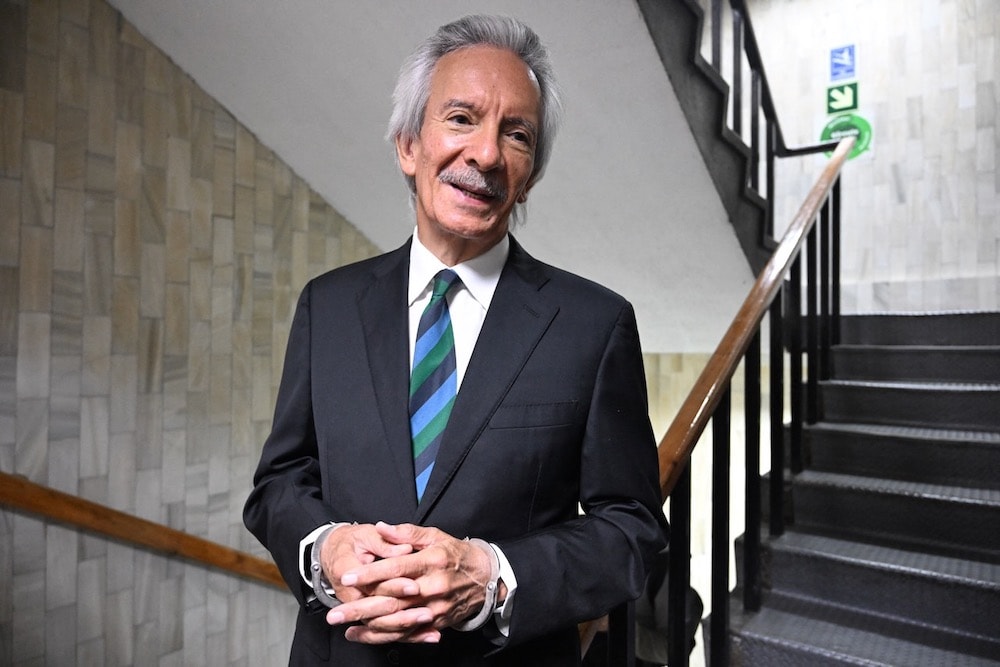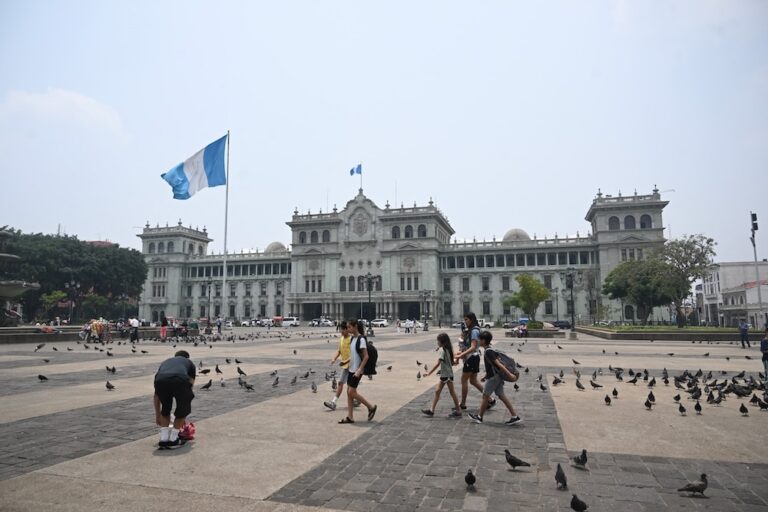The imprisoned founder of "El Periódico", which made its name by exposing corruption in the country’s ruling classes, is awaiting a new trial on money-laundering charges that press freedom groups call politically motivated.
This statement was originally published on freedomhouse.org on 21 March 2024.
The imprisoned founder of Guatemala’s El Periódico, which made its name by exposing corruption in the country’s ruling classes, is awaiting a new trial on money-laundering charges that press freedom groups call politically motivated.
By Michael Abramowitz, President
“Welcome to my place.”
With a wry smile, José Rubén Zamora warmly ushered me and a small group of Freedom House leaders and trustees into his tiny cell at a military prison in Guatemala City.
With stacks of books and family pictures on the dresser next to his bunk bed, the cell felt almost like a ramshackle college dormitory. But make no mistake: the barbed wire, concrete walls, and armed guards underscore the lack of freedom the crusading journalist has endured since his unjust detention by the Giammattei government in the summer of 2022.
Zamora is Guatemala’s famous political prisoner, the founder of the newspaper El Periódico, which made its name by exposing corruption in the ruling classes. He also finds himself in something of a legal twilight zone. He was imprisoned on what leaders in the current government had conceded to us earlier in the week were “dubious” charges, aimed at intimidating an outspoken critic of the powerful political, economic, military, and organized crime groups that make up the country’s power structure. They’re commonly known in Guatemala as “the pact of the corrupt.”
Yet even as the original case against him was dismissed last year, he remains in prison, as prosecutors seem determined to keep him locked up while he awaits an opportunity to clear his name in a retrial.
“I am in the hands of the judges,” Zamora told us. “I will get out of here eventually.”
Zamora’s unflappable manner belies the details of a case that reflects the inverted nature of justice in Guatemala. The charges against Zamora involve alleged laundering of funds intended to keep El Periódico afloat. An appeals court annulled the six-year prison sentence that was handed down in 2022 and sent the case back to court for a retrial, but the date has not been set. Independent observers and press freedom groups all see the charges as politically motivated, clear efforts to silence a critic and intimidate other would-be critics. In effect, the prosecutors charged with implementing the rule of law impartially have instead weaponized it against those, like Zamora, who have sought to expose deep-seated corruption. Other journalists and anticorruption activists have fled into exile.
Meeting with Freedom House staff and trustees last week, members of President Bernardo Arévalo’s new, reform-minded government were asked about the case and why Zamora was still in jail. They acknowledged the case’s shaky foundations, and said the matter should be addressed by the independent justice system.
For his part, Zamora said he has spent the last three months asking for a court hearing on his request to serve the pretrial period at home, as allowed under the law, but has heard nothing. “I have no idea” if the request will be granted, he told us. “It’s in limbo.”
During our two-hour conversation in his prison cell, Zamora appeared relaxed and jovial, saying he had gained back almost 20 pounds after initially losing 37 after he was first imprisoned. He spent most of the time detailing his storied career in journalism, one dedicated to exposing corruption and unsettling the powerful.
He warned that despite Arévalo’s stated commitment to fighting corruption and protecting free speech and an independent press, the influence of drug traffickers and their allies in the shadow state remains strong. His continuing imprisonment is a sign of that, Zamora said.
“They have no case,” he said. “They wanted an excuse to bring me here and lock me down.”
Soon after Arévalo’s inauguration in January, the new government offered to move Zamora to a more comfortable place while awaiting his trial, but Zamora says he refused. “I prefer to stay here with dignity,” he said, adding, “Were I to accept it, it would not be good for him, either.”
For now, Zamora is content to look forward to clearing his name in court, in “a trial where I can present my evidence.” He would like to see media outlets eventually run apologies from critics who questioned the validity of his investigative work.
Asked if Freedom House can do anything for him, he said simply: “Continue in your pursuit of freedom in all of the countries.”



